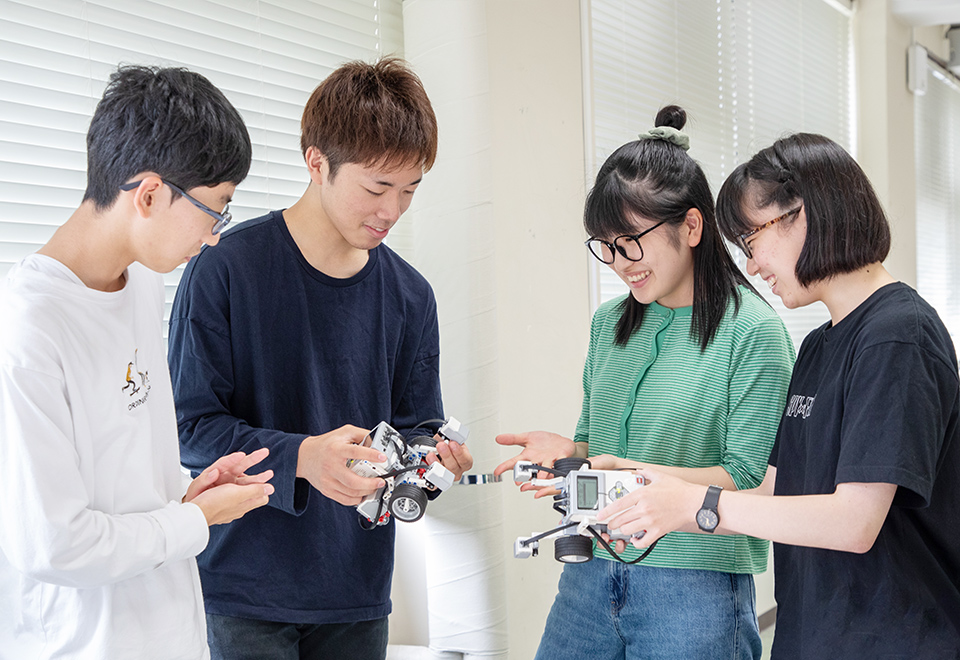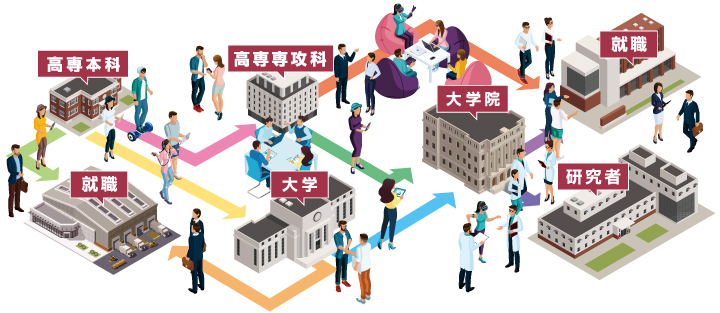KOSEN / Ibaraki College
茨城高専で、
未来への可能性を見つけよう
サイト内検索
茨城高専とは何かABOUT
OUR SCHOOL
5年間一貫でしか、
学べないものがある。
本校は、ものづくりの能力を重視し、基礎と応用、さらには一般科目と専門科目をバランス良く学ぶことが出来るため、時代をリードする創造力が育てられます。


本校は、ものづくりの能力を重視し、基礎と応用、さらには一般科目と専門科目をバランス良く学ぶことが出来るため、時代をリードする創造力が育てられます。

